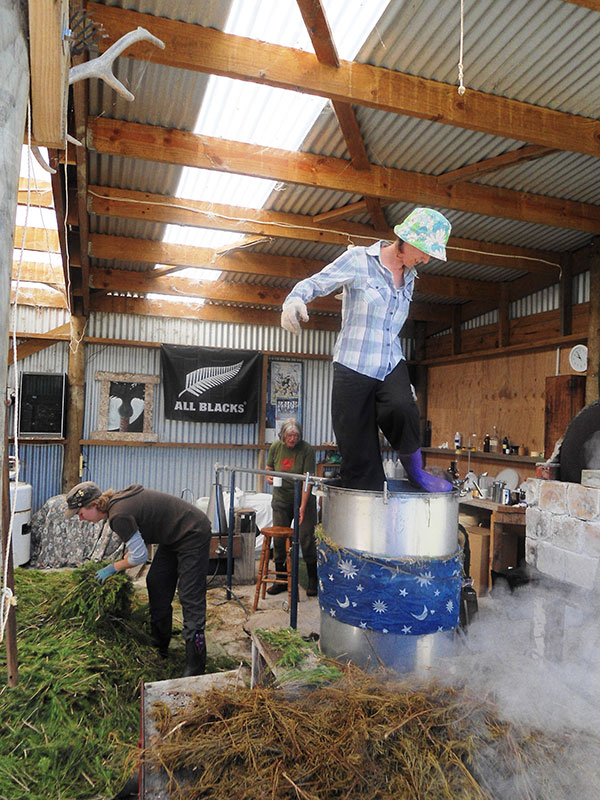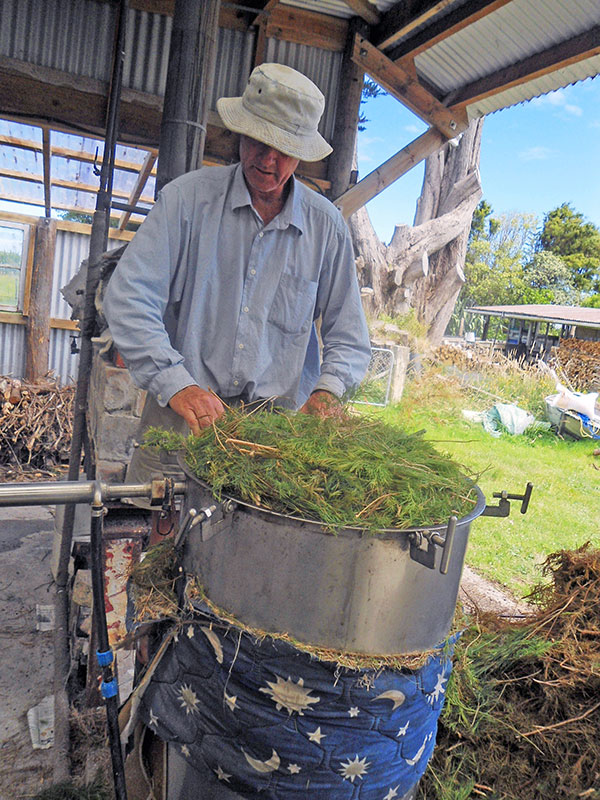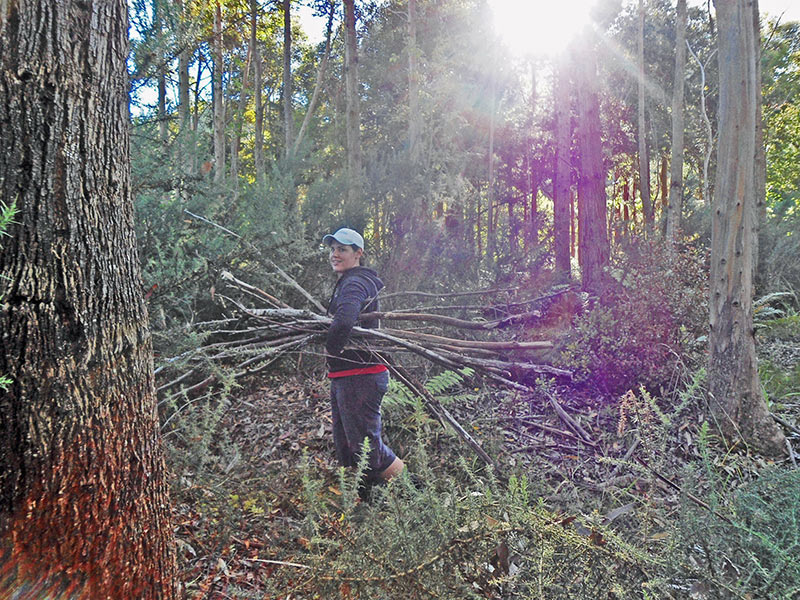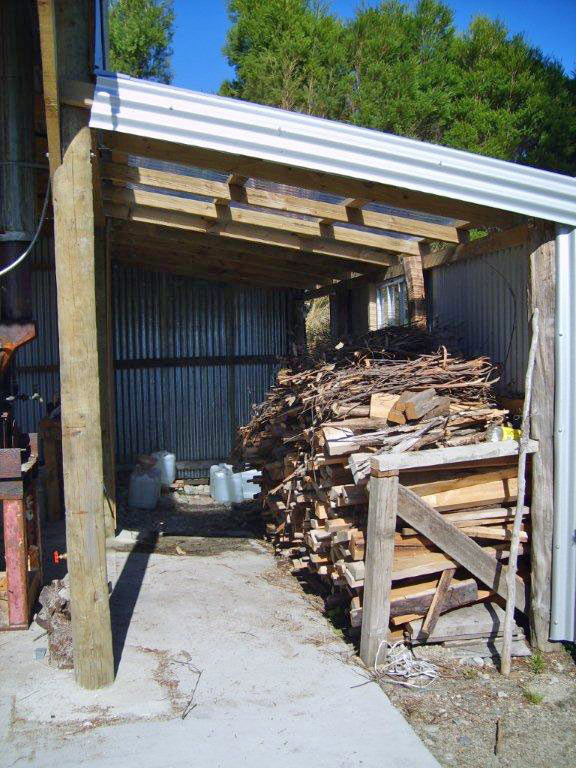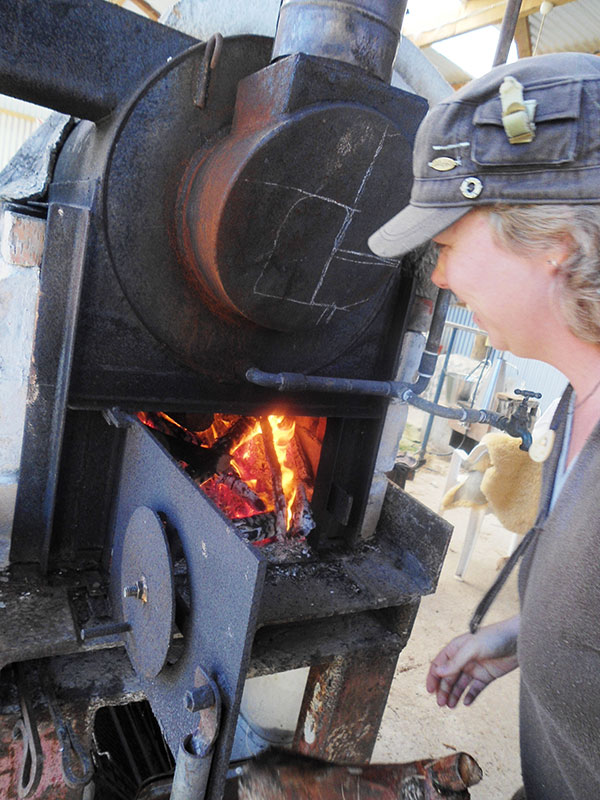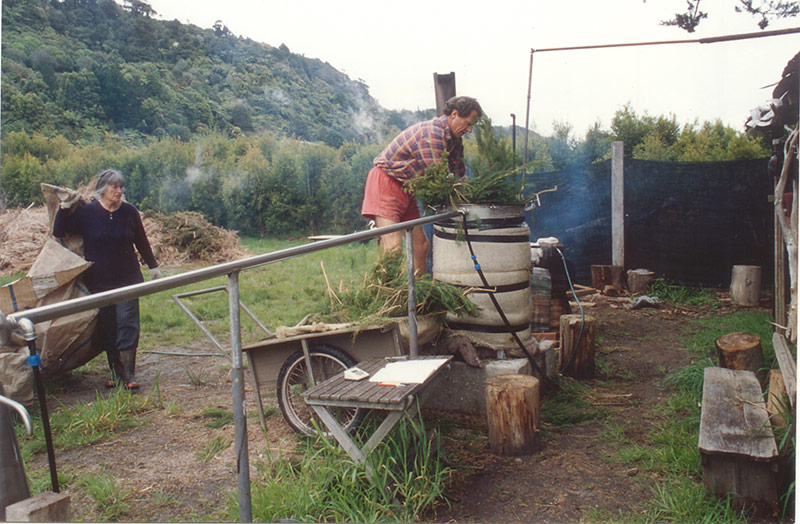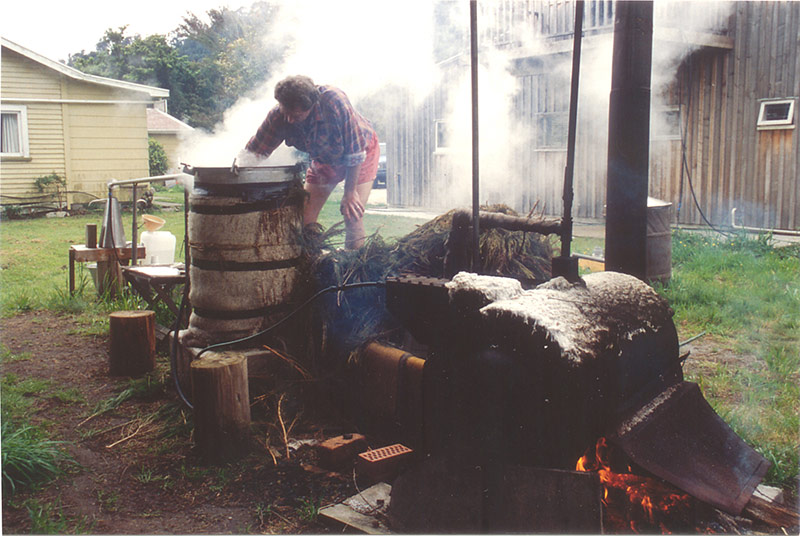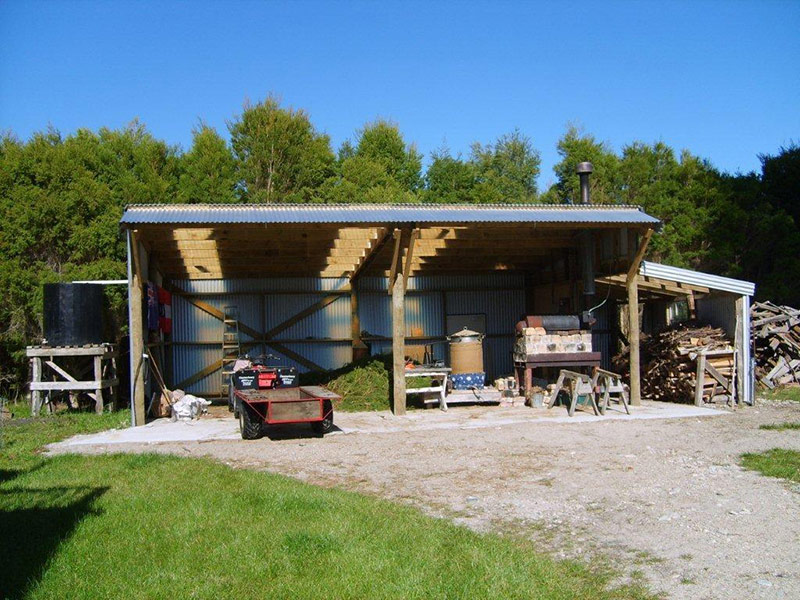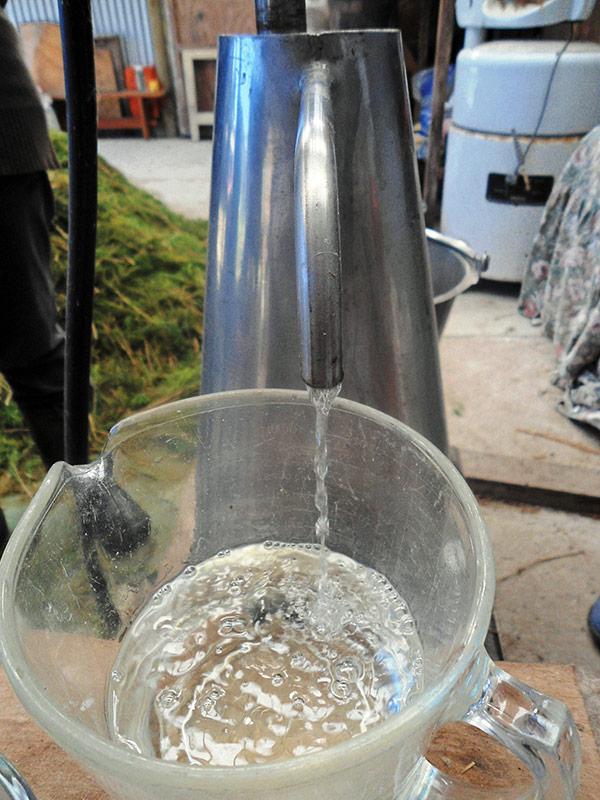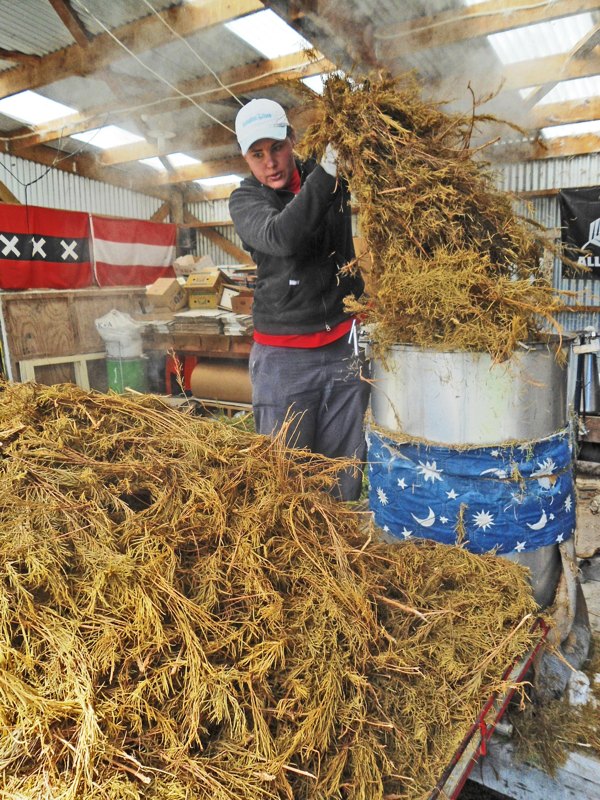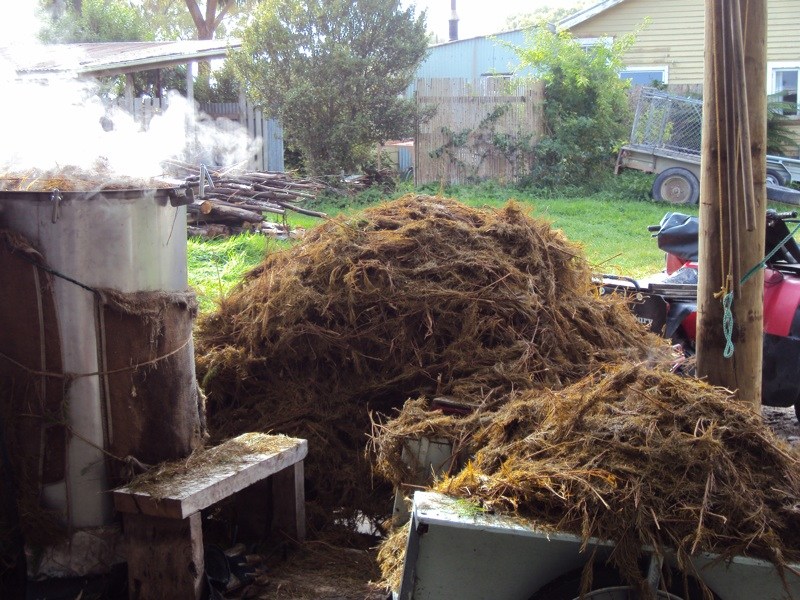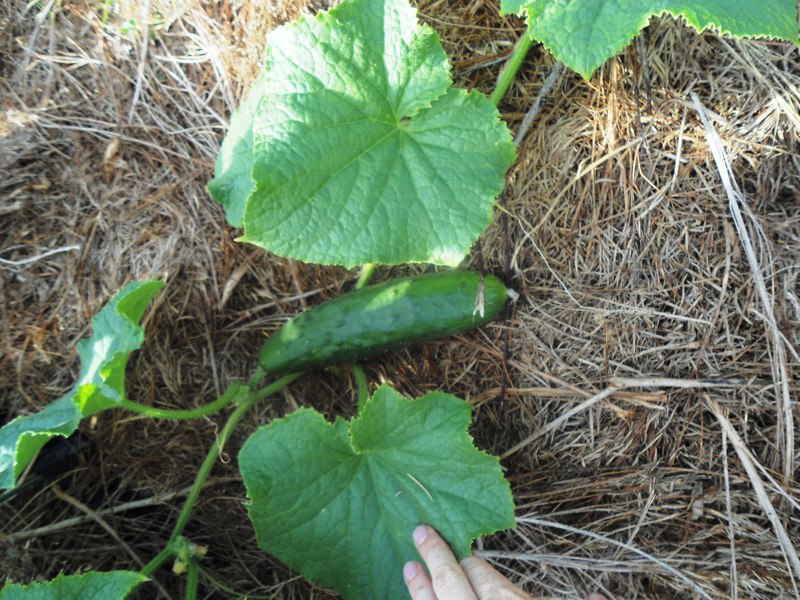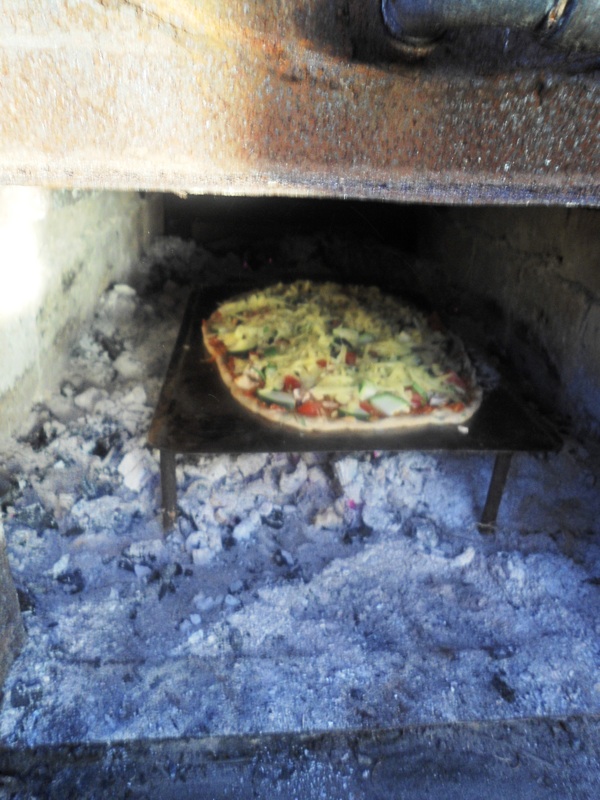The rain-water filled boiler is heated by wood from our own wood lot and constantly monitored to maintain an even temperature at low pressure. Distillation takes about 60 minutes per load. It demands regular supervision to maintain the correct temperature.
In the first 10 years our processing area was out in the open creating some issues with wind and temperature. However, like all progress, some of the charm was lost in the process.
Williams & Home (1988) observe that the major part of the sesquiterpene content of tea tree oil is contained in the final 10% of the oil distilled, which requires as much time and energy to collect as the first 90%.
It is conceivable that some small organic tea tree oil distillers may produce oils higher in sesquiterpene contents than more energy-conscious larger concerns with modern stills.
The oil collects in this container over the distillation period while the condensed steam, or hydrosol, flows steadily out the lower exit pipe.
At the end of the hour, the oil is siphoned off through the upper pipe.
On a good day we may get up to a litre per batch but we regularly get over 500mls. Our yield seems to average out at 1%. The yield of essential oil can vary from batch to batch and week to week for no apparent or scientific reason we can identify. I send samples to an Australian laboratory for testing to ensure that the essential oil matches the current Standard.
At the end of each distillation all the spent plant material is hauled out of the still pot by hand with a short rake, piled onto a trailer and spread where required as thick woody mulch. On a good day we can process up to 6 loads.


